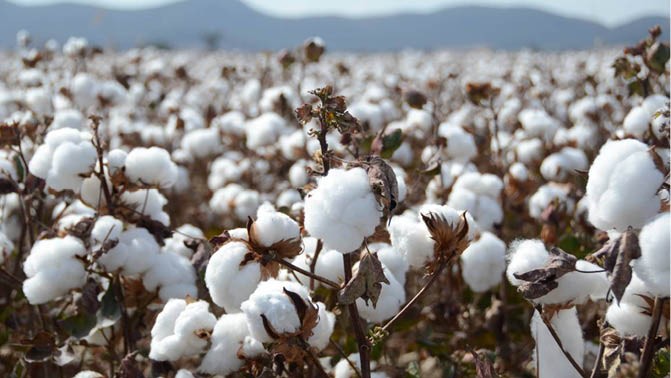Cotton Production Surpasses Domestic Demand
Since 2018, cotton production has been on the upward trajectory following the Federal Government’s intervention in the Cotton, Textile and Garment (CTG) value chain.
The cotton farmers say the current production level is due to improvements in the access to quality seeds and government’s intervention in the sub-sector.
The National Cotton Association of Nigeria (NACOTAN) said since the intervention, the number of farmers had grown from 90,000 in 2018 to about 134,000 for the 2020 wet season.
The President of NACOTAN, Mr. Anibe Achimugu, who is the Managing Director of Arewa Cotton, told Daily Trust in Abuja that cotton production was expected to cross the 200,000 metric tonnes mark during the 2020 wet season, adding that in 2019, cotton farmers achieved 120,000 to 130,000 metric tonnes, which amounted to about 80,000 metric tonnes increase.
Mr. Achimugu said there were about eight ginning companies in 2019, and that presently, the number is close to 25 ginneries with more room for others under a Central Bank of Nigeria (CBN) intervention.
He explained that, “The intervention of CBN in the 2019 season actually addressed import substitution. The cotton that was produced and the subsequent cotton that was processed by the ginneries is far above what the current capacity of Nigerian textile companies can consume. What CBN is trying to do with the excess that we have in the cotton lint that was produced is to export it so that it will add to the foreign exchange (forex) earning capacity of the CTG sector. But even at the primary processing level, you see that we can attract forex diversification drive of the Federal Government.”
Current prices
The NACOTAN president said the current prices of cotton had been the best that farmers had been able to attract at any time as far as he could remember, explaining that, “I know that in 2019, the price per tonne was N205,000 for farmers. That means a farmer is making over a N100,000 profit directly into the pocket if he was able to produce two tonnes of seed cotton. The intervention is such that CBN wants to jump-start the sector, and of course, you want to leave it to a large extend, market-driven prices and demand, and for that now, the minimum price at least this year, is N185,000 per metric tonne, which is still better than if it was to be left on its own where prices were N140,000 to N150,000 per metric tonne. I think the minimum guaranteed price since the intervention has been good.”
Quality seed question
Cotton farmers said in 2019 that there was improved access to quality seeds with potential yield of 2.5 tonnes per hectare if the best agronomic practices were followed.
With that, Mr. Achimugu said, “A farmer was jumping in yield figure of between 400 and 500 kilogrammes per hectare which was averaged at that time to 1.2, 1.5, and in fact, some were getting the 2.5 tonnes per hectare. It is how well you manage your farm, the dedication and the skill, but I will tell you specifically that perhaps the lowest that was recorded was round 700 to 750kg per hectare. But farmers were hitting 1.5 to 2.5 tonnes per hectare, which was fantastic.”
Excess ready for export
On the export of excess cotton, Achimugu said, “As I speak to you, we have international trading companies that are interested, and I know typically that when they send our Nigerian cotton to Bangladesh, parts of China and India; the market is there. Nigerian cotton itself is very good for jeans, cotton materials and of course, as an association, we are trying to see that we produce long staple cotton fibre particularly suitable for the South West to be able to produce fine linen materials and things like that. As I’m speaking to you, they are knocking on the door for the excess that is on ground.”
Moribund companies
Mr. Achimugu further said, “I know that the CBN has firm intention to revive six to seven textiles companies by 2021. The effort is on ground. It’s not a day’s job, especially for those that have been moribund for a very long time. There are challenges here and there. We used to have 180 textile mills; so the intention of the government and CBN is to bring them back with the intervention.”
(Daily Trust)


